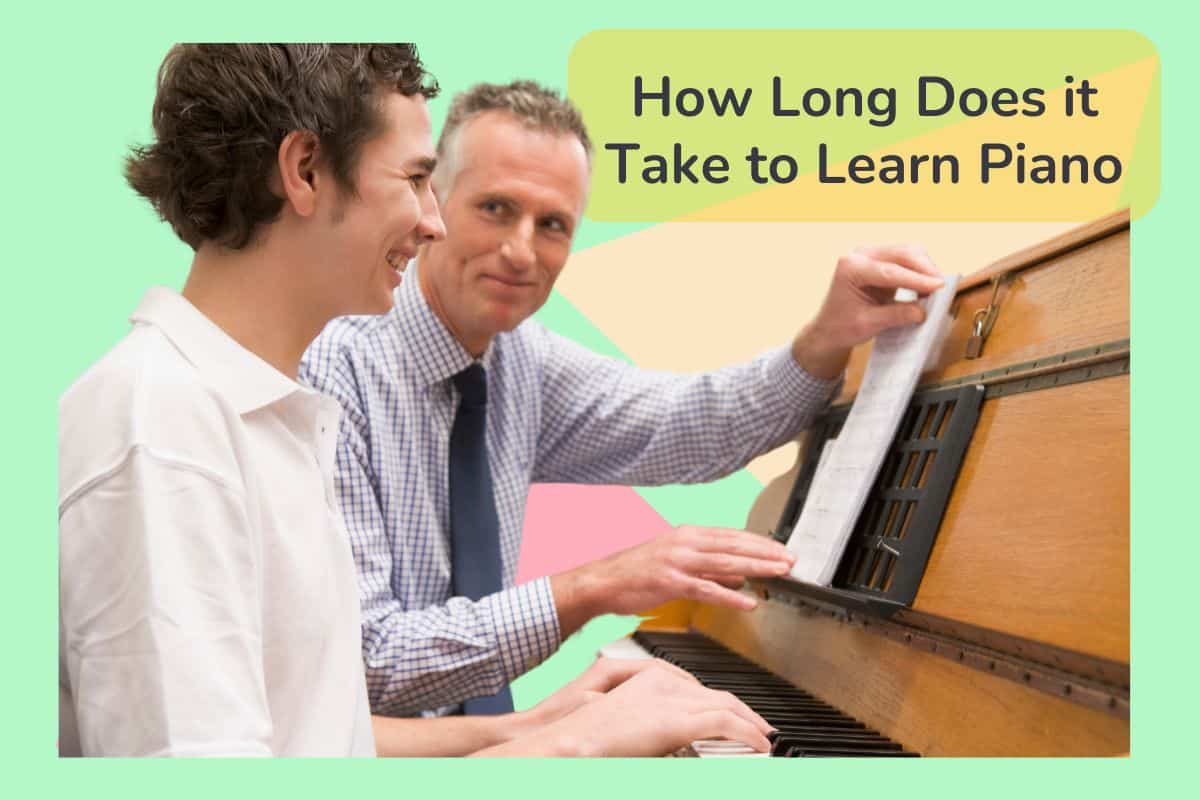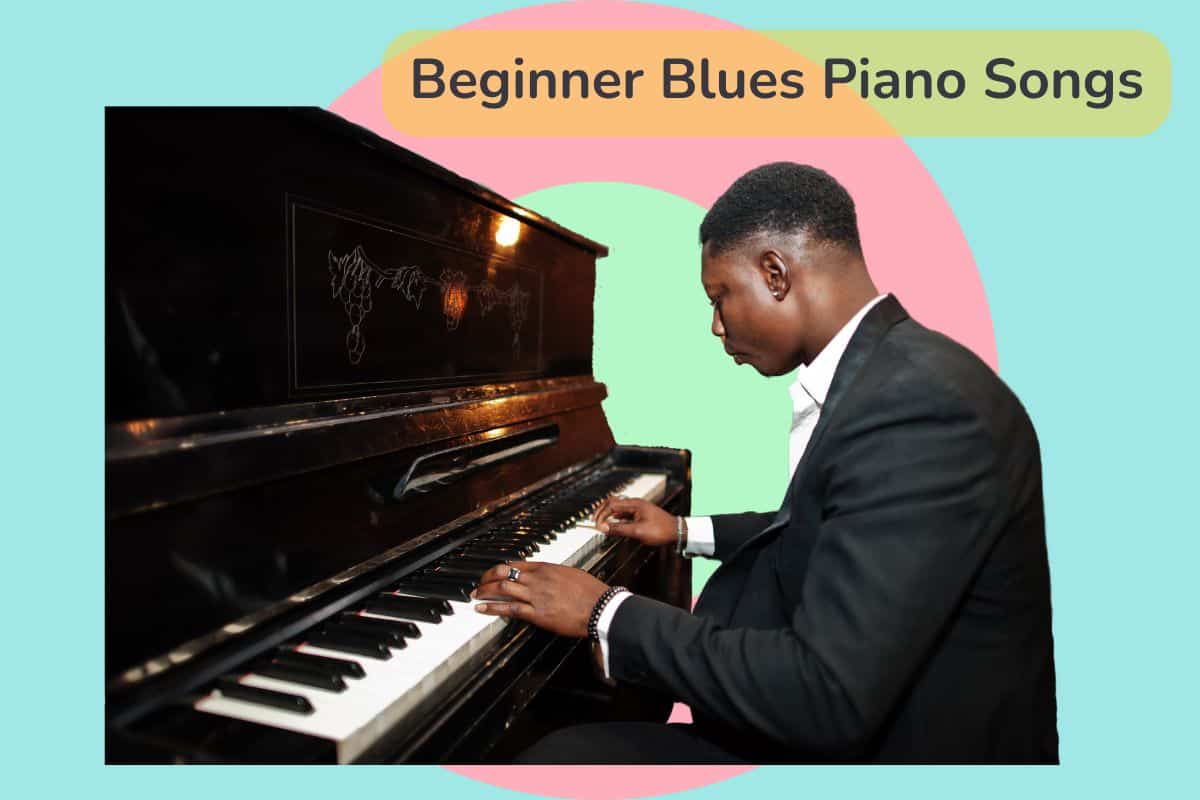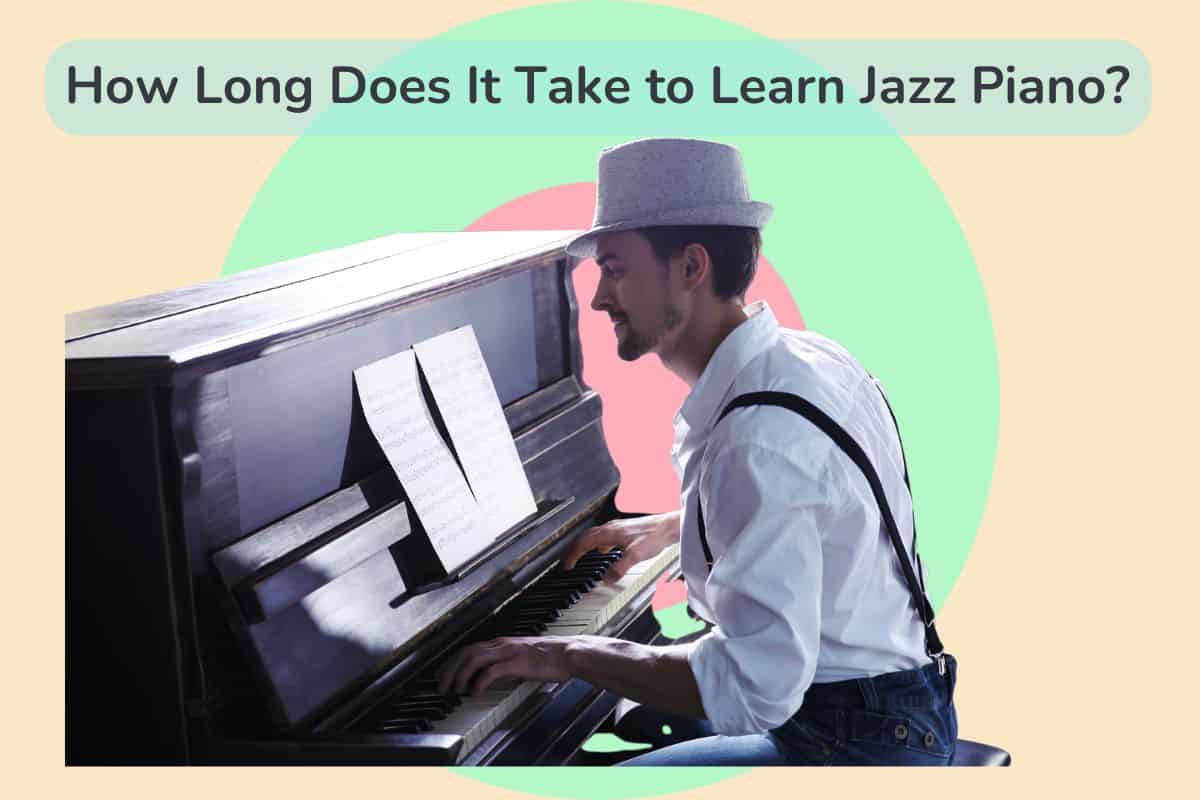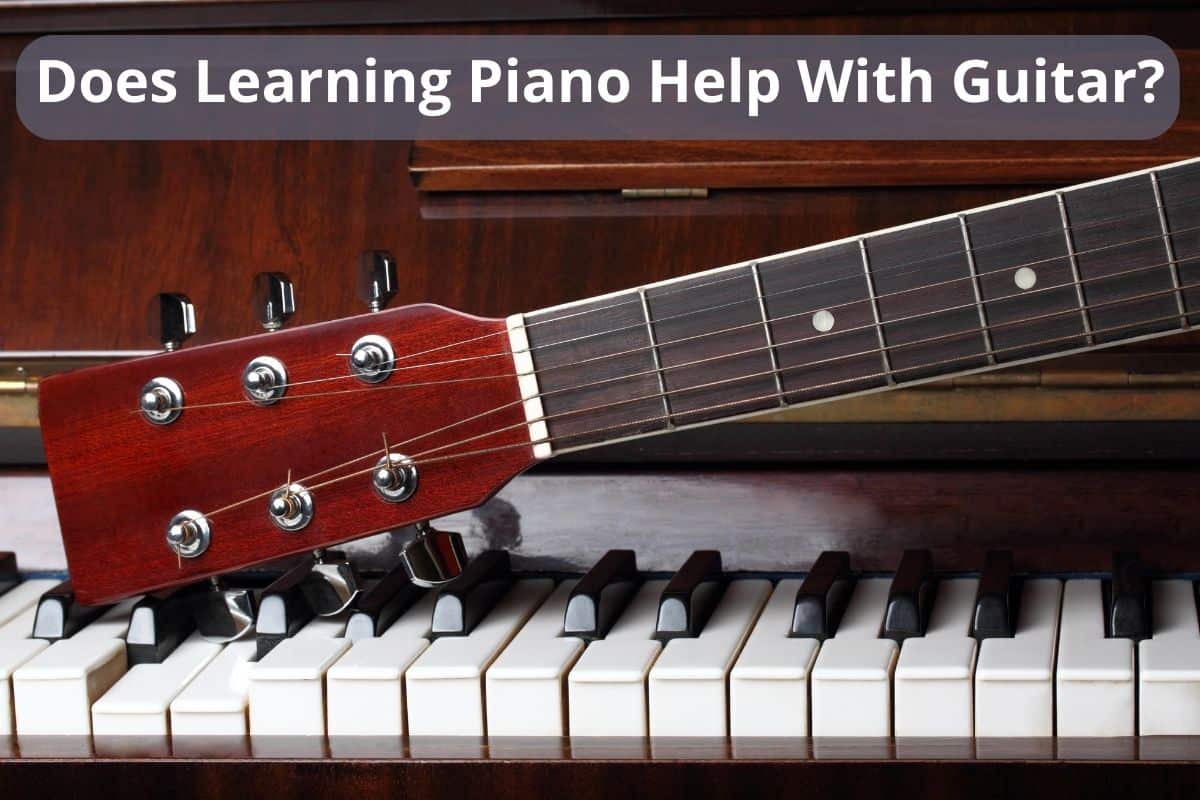Learning to play the piano can be an invigorating and rewarding experience. As you embark on this melodic journey, it’s only natural to wonder, “How long does it take to learn piano?” The answer, as you may expect, varies depending on your starting point, learning strategies, and the resources you choose to leverage.

While some passionate learners might find noticeable progress in just a few weeks, others might take longer to achieve a level of proficiency they are satisfied with. If you’re a complete beginner, you’ll see positive results within a few months to a year of focus and persistence.
Progress on the piano often depends on a multitude of factors. Keeping a consistent practice schedule, exploring different learning resources, and adopting effective strategies are instrumental in accelerating your progress. Additionally, always remember to measure your growth along the way, making adjustments to your approach as needed. And remember, the journey is as exciting as the destination!
Key Takeaways
- The time it takes to learn piano varies depending on starting point and learning strategies.
- Consistent practice, learning resources, and effective strategies contribute to your progress.
- Measuring your progress helps in staying on track and making necessary adjustments.
How Long Does It Take?
So, you want to know how long it takes to learn piano? Let’s dive into some factors that can affect your learning duration. Keep in mind everyone’s journey is unique, so your experience may vary. But let’s keep things casual and fun.
First off, musical talent plays a part in how quickly you pick up piano skills. Don’t stress if you’re not a natural Mozart; everyone goes through the same learning curve. Some people learn faster than others, but with dedication and effort, you’ll see progress.
Practice time is super important. The more you practice, the quicker you’ll improve. Get into a habit of practicing 5 or 6 days a week, 30 minutes a day is fine to start with. Those moments add up and will help you reach your goals sooner.
Don’t forget about available resources! A great piano teacher, helpful apps, or online piano lessons or courses can speed up your learning significantly. It’s all about finding what works best for you and sticking to it.
Now, your piano or keyboard matters too! A proper 88-key piano will make your learning experience smoother and more enjoyable. If you’re stuck with a cheap keyboard, don’t worry – you can still learn, but upgrading might make a noticeable difference. Just make sure your keyboard has a minimum of 61 keys.
Lastly, stay motivated! Keep your goals in mind, whether it’s playing your favorite songs, writing your own music, or impressing someone special. Play songs you enjoy and celebrate your achievements, big or small, and remember that every step forward counts.
So there you have it! Dive into your piano learning adventure with these factors in mind, and enjoy the ride. Remember, it’s all about the journey – so have fun and make the most of it!
Assessing Your Starting Point
Before you dive into learning the piano, it’s essential to understand where you’re starting from. Knowing your age, previous musical experience and your overall background in music will help you figure out how long it might take you to learn. Obviously, those with an intermediate musical foundation will progress faster than someone at the beginner level.
Let’s break it down into sub-sections to better understand this journey.
Age and Experience
Believe it or not, your age can play a role in how quickly you learn to play the piano. Younger people often pick up new skills faster, as their brains are still developing and are more adaptable. But don’t worry if you’re not a kid anymore! Adults can absolutely learn to play the piano too, and age is not a barrier. The key is to stay patient and consistent with your practice.
Remember, everyone learns at a different pace, so don’t get too caught up in comparing yourself to others. Focus on your own progress, and celebrate the small victories along the way.
Musical Background
Your previous experience with music will also have an impact on how quickly you can pick up piano skills. If you’re familiar with music theory or have experience playing another instrument, you might find it easier to understand the concepts involved in learning the piano.
On the other hand, if you’re completely new to music, you might need more time to get comfortable with the basics. Don’t get discouraged! With regular practice and a dedication to learning, you’ll see improvement over time.
As you embark on your piano learning journey, remember that it’s all about finding joy in the process. Stay focused, practice consistently, and, most importantly, have fun with your newfound hobby!
Practice Strategies
Practice Time Commitment
So, you want to learn piano, huh? First things first: set aside some time for practice. But how much time exactly? Well, aiming for just 10 minutes a day, 5 to 6 days per week, can already make a huge difference in your progress. However, increasing the practice time to 30 minutes a day will help you progress faster. Make it a habit, and be consistent with your schedule. Before you know it, you’ll be surprising yourself with how well you can play!
Quality Versus Quantity
You might think spending more hours at the piano is the key to success. But quality practice is way better than simply spending lots of time at the piano. Instead of mindlessly playing for hours, try focusing on specific goals and paying close attention to details during your practice sessions.
So, how can you make your practice quality, you ask? Take it step by step! Break down the songs into smaller pieces, work on the tricky parts, and repeat them until you’ve got it right. And don’t forget to have fun! After all, playing the piano should be a joyful experience, even when you’re practicing.
Remember, it’s not a race. Take your time, enjoy every note, and relish your improvement. With dedication, the right deliberate practice strategies, and a bit of patience, you’ll be rocking those piano keys like a pro in no time!
Learning Piano Resources
Self-Taught Versus Lessons
Deciding between self-taught learning and taking lessons depends on you! If you’re disciplined and self-motivated, self-teaching might work for you. Just remember, it is essential to set realistic goals and allocate enough time for practice. Lots of books, videos, and online guides can help you learn on your own. But, if you prefer structure and personalized guidance, taking lessons is your best bet. A good teacher can provide feedback, correct your technique, and answer your questions in real-time.
Online Tools
The internet is filled with awesome resources to help you learn piano. Here are some fantastic tools for you:
- Video tutorials: YouTube offers a wealth of video lessons catering to all levels. These range from piano basics, those at a more intermediate level, to more advanced techniques.
- Apps: Learning piano can be fun and interactive with apps like Simply Piano, Flowkey, or Skoove. They provide visual and auditory feedback, ensuring you stay on track. If you have a digital piano, you can connect with the app via MIDI for interactive learning.
- Websites: Many websites offer structured courses, like Pianote and Josh Wright, which guide you through different levels of piano playing. Some even offer personalized support from professional tutors.
Experiment with different online tools to find the ones that suit your learning style and make piano practice enjoyable!
Measuring Your Progress
Setting Goals
Learning piano can be a fun and rewarding experience, especially when you track your progress. Start by setting realistic goals for yourself. You might want to learn a specific song, play a particular scale fluently, or reach a certain level of proficiency in a given time frame. Your goals should be achievable yet challenging enough to keep you engaged.
Here are some ideas to consider when setting your goals:
- Choose a song you love and aim to learn it within a couple of months
- Target mastering a new chord or scale every week
- Set a timer and aim to practice for 15-30 minutes daily
Remember, it’s okay to adjust your goals along the way. The important thing is to keep challenging yourself and enjoying the learning process.
Performance Milestones
Tracking performance milestones can give you a sense of accomplishment and help you stay motivated. These are specific skill-based achievements that you can work towards throughout your piano journey.
Here are some common performance milestones to consider tracking:
- Learning a new chord or scale: It’s a great confidence booster when you can play a new chord or scale smoothly. Keep a list of the ones you’ve learned and reward yourself when you master a new one.
- Playing a song from memory: Being able to play a song without sheet music can really make you feel like a pro. Mark down the songs you can play from memory and watch your repertoire grow!
- Performing in front of others: Sharing your music with friends, family, or even at a public event can be a thrilling experience. Note the dates of your performances to remember these special occasions.
Using tables, bullet points, or even a practice journal can help you keep track of your goals and performance milestones. The key is to celebrate your achievements and keep pushing yourself forward. Now, grab your sheet music, sit down at the piano, and start making some beautiful music!
How Many Lessons To Learn the Piano?
Another important question you may have after asking, “How long will it take?” is, “How many lessons will you need?” The answer to this question isn’t a simple, one-size-fits-all number. It’s as diverse as the numerous compositions of Bach or Mozart! Your musical goals, current knowledge, and dedication all play a major role.
If you have dreams of playing complex symphonies in concert halls like Lang Lang or Yuja Wang, you might be looking at between 500 to 1000 lessons. This might seem daunting, but consider each lesson as a stepping stone toward achieving musical greatness. Remember, every accomplished pianist started with a single note!
However, if your ambition is to play popular tunes in a relaxed setting, with songs from Adele or Elton John, you’ll likely need between 100 and 200 lessons. This equals about one lesson per week over a span of 2 to 4 years.
It all depends on where your focus is. If you just want to get started and play some songs without having to read music, then Pianote’s Method will be a great place to start. In this approach, Lisa Witt gets you to learn songs by playing chords and training your ear before you even look at musical notes. Of course, you’ll learn to read music later in the course, but you’ll have a few tunes under your belt by then and a love of playing the piano.
Is Learning Piano Really Difficult or Just Time-Consuming?
Learning piano and mastering piano skills is not an easy feat. It requires dedication, practice, and time. While some may find it challenging, others see it as a time-consuming task. However, with consistent effort and proper guidance, anyone can conquer the piano and unleash their musical talents.
Final Thoughts
So, you’ve been curious about how long it takes to learn piano, and we’ve done our best to give you a clear idea. Delving into the world of piano playing takes time, and your progress will depend on a variety of factors. Factors like deliberate practice, talent, love of music, age, teacher, and time availability all play a role in the learning journey.
You might have stumbled upon the story of the concert pianist James Rhodes, who claimed that learning piano can be done in as little as six weeks. While that sounds enticing, it’s essential to remember that every person’s learning progress will be different.
Learning anything new requires a considerable amount of time and dedication, and the piano is no exception. You’ll go through a learning curve that you might find daunting initially. However, with about a month’s worth of practice, you can learn the basics and start playing some songs. Don’t let that discourage you, though! Taking baby steps is entirely normal, and remember, it’s a marathon, not a sprint.
In the grand scheme of things, most people can get great results within three to five years if they’re diligent and practice effectively. So have some fun, stick to your practice routine, and watch as your piano skills flourish in the years to come. Happy playing!



